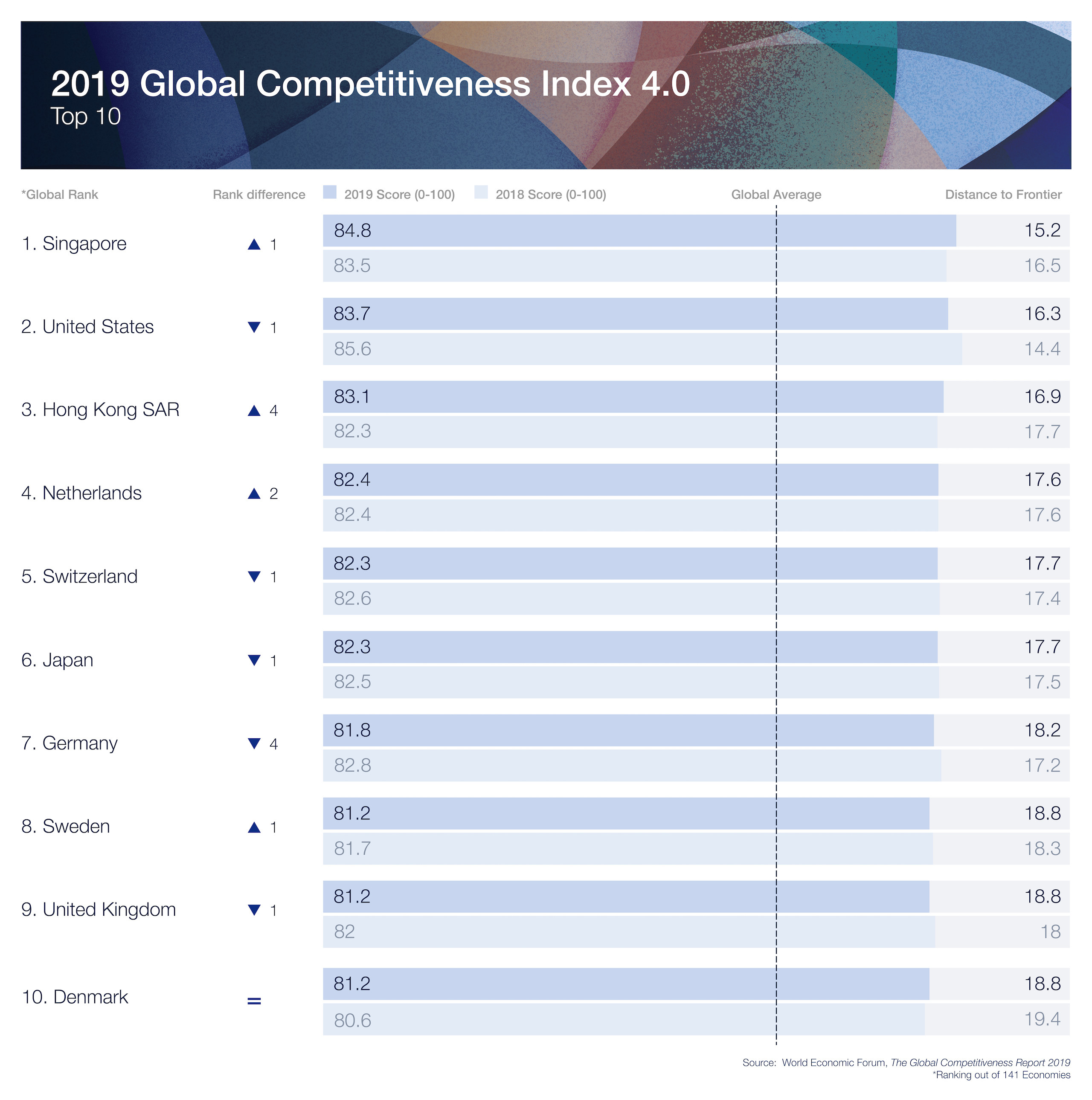7 things to know about India's economy today

India has seen the fast growth for many years now in both the economy and in population. Image: REUTERS/Amit Dave

Get involved with our crowdsourced digital platform to deliver impact at scale
Stay up to date:
India
India has emerged as a powerhouse in the world economy, with its large population, rapid expansion and investment in innovation.
As leaders from government, the private sector, academia and civil society gather in New Delhi for the World Economic Forum’s India Economic Summit, here are eight things you need to know:
1) The economy’s slowing but it’s still among the world’s fastest-growing
India’s central bank says growth is set to slow, due to a weakening of domestic and external demand, and that prompted it to revise down its growth projections for the year 2019-20 to 6.9% from 7%.
What is the World Economic Forum's India Economic Summit 2019?
Even so, World Bank forecasts show the nation will still outpace other economies and that’s backed up by the International Monetary Fund’s latest projections, which see India growing 7% in 2019, and picking up to 7.2% in 2020.
The outlook is less certain, with Gerry Rice, the IMF’s Director of Communications saying recent growth in India has been “much weaker than expected” and “risks to the outlook are tilted to the downside.”
2) It’s set to become the most populous nation
In around 2027, India is projected to overtake China as the world’s most populous country, according to the United Nations, which also predicts that nine countries will make up more than half the projected growth of the global population between now and 2050.
India leads the way, followed by Nigeria, Pakistan, the Democratic Republic of the Congo, Ethiopia, the United Republic of Tanzania, Indonesia, Egypt and the US.
India also has the largest diaspora in the world, with around 18 million of its citizens living in other countries.
3) It’s making progress on competitiveness
While India ranks 58th in the World Economic Forum’s Global Competitiveness Report, it is making progress, climbing five places from 2017, the largest gain of any country in the G20.
“India is a remarkable example of a country that has been able to accelerate on the pathway to innovation,” the report says. Even so, “business dynamism is hampered by administrative hurdles.”
The report also says that while Indian companies can access the third largest market in the world, the country would benefit from increased trade openness and more widespread adoption of ICT technologies.
What do we mean by ‘competitiveness’?
4) It’s fostering innovation and start-ups
India has the third-largest start-up base in the world, according to a report from IT trade association NASSCOM. That equates to more than 4,750 technology start-ups and about 1,500 in 2018 alone, and the government says it wants to foster more.
5) Some people are getting wealthier
Entrepreneurship will help contribute to strong growth in private wealth, according to AfrAsia Bank’s Global Wealth Migration Review 2019, which forecasts 10-year wealth growth of 180% in India, faster than other nations including China.
6) There’s still work to do on poverty
India has reduced absolute poverty, World Bank statistics show, with one measure declining to 13% in 2015, from 22% in 2011/12. Even so, poverty is still a central issue for the country, with the latest estimates showing that 176 million Indians were living in extreme poverty in 2015.
The Forum’s Inclusive Development Index notes that, while poverty has declined over the past five years, 6 out of 10 Indians still live on less than $3.20 per day. It says “there is substantial scope for improvement for India in this aspect.”
The International Monetary Fund has noted the progress made in India and the number of people lifted out of poverty, while stressing the importance of modernizing labor laws and regulations and other measures to help increase formal employment, particularly the employment of women.
7) And on equality
India has a 33% gender gap that’s yet to be bridged, according to the World Economic Forum’s Gender Gap report. It ranks third-lowest in the world on Health and Survival for women.
Inclusivity and other themes are on the agenda at the India Economic Summit, which will host discussions on policy, business models and guidelines to bolster India’s dynamism and help it attain its full potential.
Don't miss any update on this topic
Create a free account and access your personalized content collection with our latest publications and analyses.
License and Republishing
World Economic Forum articles may be republished in accordance with the Creative Commons Attribution-NonCommercial-NoDerivatives 4.0 International Public License, and in accordance with our Terms of Use.
The views expressed in this article are those of the author alone and not the World Economic Forum.
Related topics:
The Agenda Weekly
A weekly update of the most important issues driving the global agenda
You can unsubscribe at any time using the link in our emails. For more details, review our privacy policy.
More on Geographies in DepthSee all
Andrea Willige
April 23, 2024
Libby George
April 19, 2024
Apurv Chhavi
April 18, 2024
Efrem Garlando
April 16, 2024
Babajide Oluwase
April 15, 2024
Rida Tahir
April 9, 2024










